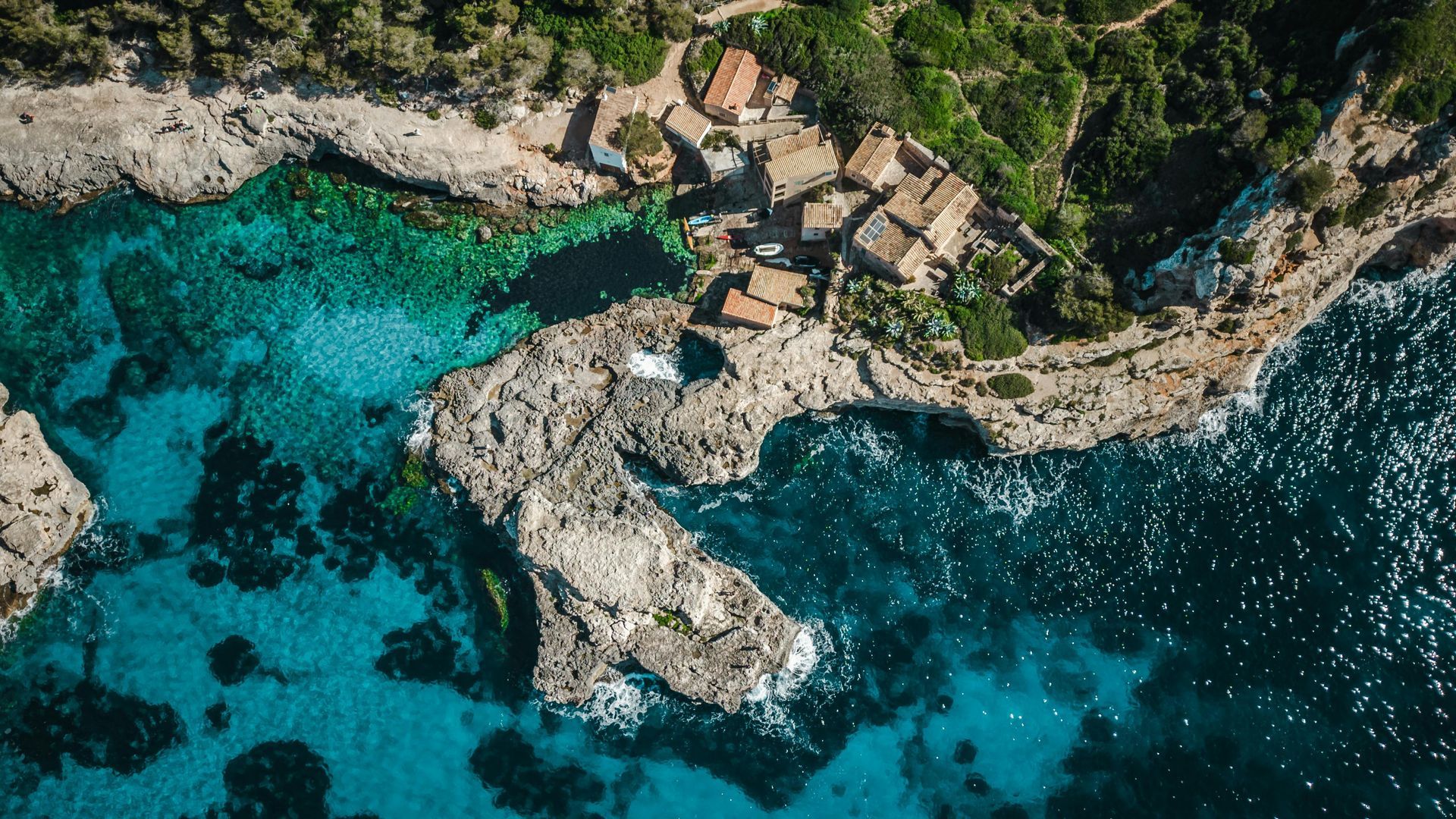Property Purchase Explained: From upfront taxes and ongoing costs to essential legal checks, due diligence, key documentation, and navigating the buying process

Planning on owning property in Spain? Whether it’s a sun-drenched villa, a vibrant city apartment, or a tranquil rural retreat, purchasing property in a new country involves a unique set of legal and tax considerations.
This guide will walk you through the essential steps and key factors, to provide you with the basics to consider and look out for when buying property in Spain.
1. Understanding the Upfront Costs: Purchase Taxes & Fees
Before you even start house hunting, it's crucial to understand the significant costs involved in the purchase itself. Did you know that the total tax and fees can add up to around 10-14% of the purchase price?
When you buy a property in Spain, these are the main upfront costs:
- For New Build Properties:
- VAT (IVA): A flat 10% of the purchase price.
- Stamp Duty (AJD - Impuesto de Actos Jurídicos Documentados): Typically around 1.5% of the purchase price (this rate can vary slightly by region).
- For Resale Properties:
- Transfer Tax (ITP - Impuesto de Transmisiones Patrimoniales): This is the most significant purchase tax for resale properties, ranging from 6% to 13% of the purchase price. Crucially, this rate varies significantly by autonomous region in Spain, so always verify the specific rate for your chosen location.
Beyond Taxes: Essential Fees to Budget For
In addition to the taxes, you must also account for professional fees:
- Notary Fees: Typically range from 0.5% - 1.0% of the purchase price for the public deed of sale.
- Property Registry Fees: Usually between €600 and €1,500 for registering the property in your name.
Tip: All these purchase taxes and fees are typically paid by the buyer at the time of completion (signing the escritura before a notary). Factor in approximately €1,100 - €2,500+ extra (conservative) for Notary & Registry fees on top of the property price and main purchase taxes.
2. Legal Due Diligence: What to Check BEFORE You Buy
Buying property in Spain as a foreigner means navigating a complex legal landscape with different regional laws. Thorough legal due diligence is paramount to avoid unpleasant surprises and ensure the property is fully legal and free of encumbrances.
2.1. Urban Planning & Legality of the Property: The Paradox of Registry & Cadastre
It might surprise you, but the fact that a house is registered with the Property Registry (Registro de la Propiedad) or the Cadastre (Catastro) does not automatically guarantee its legality. This is a critical point: a construction can be fully or partially illegal even if recorded.
- Property Registry Paradox: The Registry allows for the inscription of "new old constructions" (declaraciones de obra nueva antigua) based on a technical certificate, even if the original construction might have incurred an infraction. The Registry's primary function is to record ownership and charges, not to determine urbanistic legality.
- Cadastre's Role: The Cadastre focuses on determining the property's value for tax purposes (like IBI) based on its built square meters, regardless of their legality.
The Risk: You could end up with a property that, despite being registered, is partially or totally illegal. This can lead to severe consequences for the future owner, such as:
- Inability to obtain reform licenses.
- Prohibition from contracting utility services (electricity, gas, water, sanitation).
Crucial Step: A municipal certificate of non-existence of urbanistic infraction files is not sufficient, as it only confirms whether current files are open, not the overall legality of the building. Even a habitation certificate (cédula de habitabilidad) doesn't guarantee legality.
Our Recommendation: It is absolutely essential to have an urbanistic audit carried out by a specialist in the field to analyze the urbanistic legality of the property.
Rural Land Caution: Exercise extreme caution when buying property on rural land. This land is primarily reserved for agricultural use. Consult with the respective Town Hall (Ayuntamiento) and Island Council (Consell Insular) to ensure you have the necessary permits and licenses for residential use. Many unpleasant and serious surprises await unwary buyers in these situations.
2.2. Seller's Urbanistic Obligations
Spanish law places significant obligations on the seller regarding the urbanistic status of the land. The seller must state in the property title:
- The urbanistic situation of the land if it's not suitable for private use or building, has illegal constructions (fuera de ordenación), or is designated for social housing.
- Any outstanding legal duties or obligations on the land.
Your Protection: Infringement of these provisions allows the buyer to rescind the contract within four years and demand compensation. Even minor urbanistic illegalities can classify an entire dwelling as fuera de ordenación. It is highly advisable to commission an urbanistic report from an architect to identify such constructions and ensure they are properly documented in the purchase contract.
2.3. Property Registry Certificate vs. Nota Informativa
Always request a "certification" from the Property Registry, not just an informational note (nota informativa). While cheaper and faster, a nota informativa only provides general information and can contain inaccuracies that could be highly relevant (e.g., undisclosed charges).
With a certification, you can verify:
- The true owner(s) of the property.
- Any existing charges (mortgages, easements like views or rights of way, embargos, etc.).
- That no tenants are formally registered (unregistered tenants have less protection).
- If the property is subject to official protection schemes (which come with significant obligations and limitations).
Important Note: The Property Registry does not certify property boundaries or exact square meters unless it is coordinated with the Cadastre (this coordination must be explicitly stated in the registry).
Post-Purchase Registration: Ensure the property is registered in your name as soon as possible after completion (typically takes 30-60 days). Registering provides legal protection against third parties. Your notary can electronically submit the public deed of sale immediately after signing – make sure to request this.
2.4. Cadastre's Role
While useful for tax valuation (IBI, Capital Gains, Wealth Tax), the Cadastre's primary purpose is tax collection. It does not certify boundaries or precise square meters. However, it's vital to verify the assigned main use of the property. If it doesn't match the actual use (e.g., a commercial premise listed as a dwelling), changing it can be complex and may require a license for change of use. Be aware of recent exceptions or regularizations (e.g., Decree Law 6/2023 in the Balearic Islands).
2.5. Coastal Law (Ley de Costas)
If you are buying property near the sea, you must consult the Demarcation of Coasts (Demarcación de Costas) and obtain a certificate confirming the property is not affected by the 1988 Coastal Law, especially if it falls within the maritime public domain (within 10 meters of the coastline).
2.6. Military Authorization (For Non-EU Buyers in Specific Areas)
If the buyer is not an EU citizen, prior authorization from the Ministry of Defense may be required for the public deed of sale of rural or developable properties in the Balearic Islands, or for constructions on such properties. This applies to foreign individuals and legal entities (or Spanish entities under foreign control) who are nationals of non-EU/EEA countries.
- Swiss citizens: Generally exempt for individuals, but legal entities may still require it (interpretation varies).
- UK citizens: Those who were residents in the EU at Brexit (31.12.20) and remain so are exempt. Other UK citizens will need this authorization.
- Spousal Consent: If a non-exempt citizen is married under a community property regime to an exempt citizen, authorization might still be required even if the property is solely in the name of the exempt spouse.
3. Essential Documentation to Request
Before purchasing, ensure you request the following documents from the seller:
- Habitation Certificate (Cédula de Habitabilidad)
- Energy Efficiency Certificate (Certificado de Eficiencia Energética)
- For Apartments in Communities:
- A certificate confirming all community fees are up-to-date.
- A separate certificate confirming no extraordinary levies (derramas extraordinarias) have been approved (even if payment is due later).
- Last four receipts for IBI (Annual Property Tax) and Waste Collection Tax (Residuos Sólidos).
4. Understanding Tax Implications of Ownership (After Purchase)
Congratulations, you own property in Spain! But the tax journey doesn't end at completion.
4.1. Owning the Property (Main Residence vs. Second Home)
- Your MAIN Residence: If this property is your habitual residence in Spain (meaning you spend more than 183 days per calendar year physically present in Spain, establishing your "center of vital interests" here), it is generally EXEMPT from Imputed Income Tax.
- Second/Holiday Home (not your primary residence): If the property is not your main residence, you DO pay Non-Resident Imputed Income Tax (Impuesto sobre la Renta de No Residentes for imputed income). This is a tax on the potential benefit of owning a non-rented property.
- It's typically calculated as 2.0% or 1.1% of the property's cadastral value (an administrative value, often lower than market value).
- It is filed through Modelo 210 annually.
- Important: This applies even if the property is empty for most of the year.
4.2. If You Rent It Out
If you generate rental income from your Spanish property, you'll pay tax on that income:
- Non-EU Residents: You will pay a 24% flat tax on your gross rental income. Crucially, no deductions are allowed for expenses like mortgage interest, repairs, or property management fees.
- EU Residents: You will pay 19% tax on your net rental income, meaning you can deduct legitimate rental-related expenses (e.g., mortgage interest, repairs, local taxes, community fees, insurance).
- Filing: Rental income is declared and paid through Modelo 210 annually.
Key Difference & Legal Debate: The difference in tax treatment (deductions allowed for EU vs. non-EU residents) is a subject of ongoing legal debate, with some legal experts considering this treatment potentially discriminatory against non-EU residents.
5. Other Ongoing Costs & Taxes to Plan For
Beyond income taxes related to ownership or rental, here are other recurring costs:
- Annual Property Tax (IBI - Impuesto sobre Bienes Inmuebles): This is a local municipal tax calculated based on the cadastral value of your property.
- Garbage Tax (Tasa de Basura) & Community Fees (Gastos de Comunidad): These are local taxes and fees for common services if you own an apartment or a property within a community. Community fees can range significantly, from €50 to €500+ per month, depending on the size and services of the community.
- Wealth Tax (Impuesto sobre el Patrimonio): This tax applies to the net value of your worldwide assets (including Spanish property) above certain thresholds. Thresholds vary significantly by region, and some regions offer substantial exemptions or bonuses.
6. Important Considerations During the Purchase Process
6.1. Fiscal Liens (Afecciones Fiscales)
Be cautious of afecciones fiscales (fiscal liens) appearing in the Property Registry. These indicate that for up to four years after the purchase, the property itself can be held liable for any unpaid tax debts related to previous transactions if the previous owner fails to pay after a tax audit.
6.2. Rural Property Right of First Refusal (Retracto)
If you're buying rural property, be aware of a potential right of first refusal that may exist for neighboring landowners.
6.3. Tenant's Right of First Refusal (Retracto del Inquilino)
When buying a rented property, ensure the tenant has explicitly waived their right of first refusal in the rental contract.
6.4. Commercial Premises Purchase
If purchasing a commercial premise, an engineer should verify if the intended activity is permitted by urbanistic regulations to obtain an activity license, and if any necessary adaptation works are feasible.
6.5. Sale of a Family Home
When selling a family home, even if only one spouse is the legal owner and they are under a separation of assets regime, the consent of the non-owning spouse is generally required (e.g., Article 4.3 of the Civil Law Compilation of the Balearic Islands).
6.6. Cadastral Coordination with Neighbors
Verify if adjacent properties are coordinated with the Cadastre. If so, ensure they don't overlap or invade the property you intend to buy. The georeferenced boundaries in the registry-cadastre system take precedence over physical realities like walls or fences, and you could end up buying less than you perceive.
6.7. Tourist Rental Activity Transfer
If you're acquiring a property with an existing tourist rental license, ensure the activity is properly registered with the local tourism authority (e.g., Registro de empresas, actividades y Establecimientos turísticos del Consell de Mallorca) and has been active for the past three years. The seller must ensure the change of ownership of the activity is formally processed to avoid future liability.
6.8. Decennial Liability Insurance (Seguro de Responsabilidad Decennal)
New constructions must have this insurance to cover structural defects for 10 years. For self-promoters (those who built their own home), this insurance is not mandatory initially. However, if they sell the property within 10 years of completion, the buyer's express exemption and proof that the seller lived there (e.g., empadronamiento certificate) may be required.
6.9. Real Estate Agency Mediation Contracts
Understand that a real estate agency's contract is primarily for mediation – connecting buyer and seller. It does not typically include legal advice. Agencies usually exempt themselves from liability for problems arising from the purchase. Be cautious with these contracts, especially regarding exclusivity clauses. Clarify when the agency's fees are due (ideally only upon signing the public deed of sale, not just a private reservation contract).
6.10. Hidden Defects (Vicios Ocultos)
For second-hand property sales, the seller is liable for hidden defects for six months. This period can be modified in the purchase contract.
6.11. Off-Plan Property Purchases (Compraventa sobre Planos)
- Ensure the developer has Decennial Liability Insurance (for structural defects) and that it's included in the building's book.
- Confirm the developer has insurance or bank guarantees to safeguard your advance payments. This guarantee should be individual for your payment, not collective.
- Verify your partial payments go into a specific, segregated bank account used only for your project's construction.
- Confirm the property has the final completion certificate (final de obra) signed by the architect and is registered in the Property Registry.
6.12. Homeowners' Associations (Comunidades de Propietarios)
If buying an apartment, review the community's statutes and internal regulations. These can govern aspects like pool use, terraces, and crucially, whether tourist rentals are permitted.
6.13. Purchase Process: Arras Contracts vs. Option Contracts
The standard process involves signing a private purchase contract with an arras clause (a deposit, typically 10% of the price). After 2-3 months, the public deed of sale is signed before a notary.
Beware of "Option to Purchase" contracts (contratos de opción de compraventa) due to their significant fiscal impact. These can be treated as two separate taxable operations, leading to paying Transfer Tax (ITP) twice (once on the option premium, then again on the full purchase price).
To avoid this double taxation, an arras contract is generally advisable. However, even with arras, be cautious: avoid taking possession (e.g., getting keys) before the full purchase price is paid, as this could be legally interpreted as the sale having already occurred, leaving the seller with only a right to claim payment. This is a legally complex area requiring specialized advice.
7. Why Expert Legal & Tax Advice is Indispensable
Buying property in Spain as a foreigner means navigating a complex legal landscape with different regional laws and nuanced tax implications. The information in this guide is intended as general guidance and specific advice should be sought when considering a property acquisition.
At SamirLaw, we provide comprehensive support:
- Thorough Legal Due Diligence: We meticulously check for debts, planning issues, and ensure the property's full legality.
- Strategic Tax Planning: We help minimize your tax burden legally, both during purchase and throughout ownership.
- Power of Attorney if you’re Abroad: We can assist with POAs, saving you travel and simplifying processes.
- Navigating Local Regulations: We guide you through regional specificities, helping you avoid penalties.
- Understanding Your Obligations: We ensure full compliance with Spanish law.
- Estimating All Purchase Costs: We provide a clear breakdown of all expenses, preventing surprises.
- Determining Your Tax Residency Status: Crucial for understanding your ongoing tax obligations and potential exemptions (like the main residence rule for imputed income tax).
- Personalized Advice: We address your unique situation, offering clarity on complex matters.
- Multilingual Support: Our native English-speaking (also fluent in German, French, and Spanish) lawyers ensure no language barriers.
For a clear breakdown of all expenses, including residency implications and potential tax savings. Contact us to schedule a consultation.






